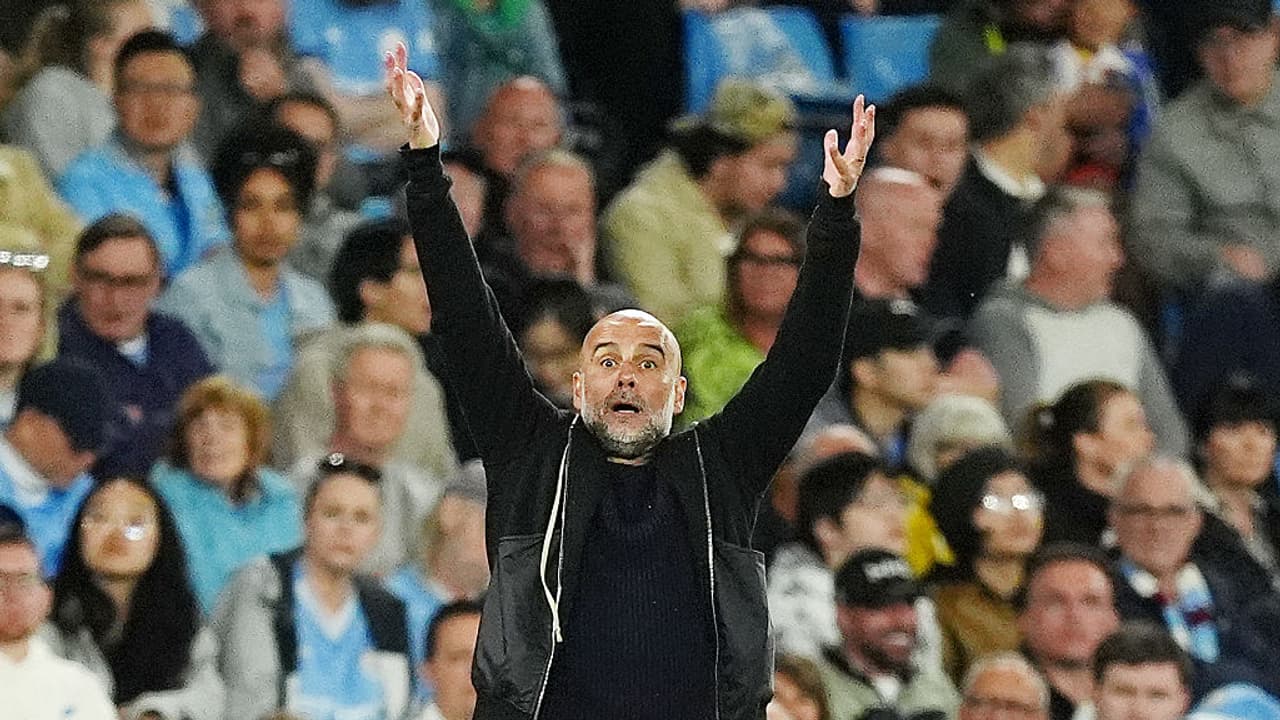A notable tactical shift has emerged in the Premier League, with teams increasingly favoring physical duels and long throws over finesse. This trend has led even pioneers like Pep Guardiola to adapt their philosophies.
In the Premier League this season, a notable tactical shift has emerged as teams increasingly focus on physical duels rather than the finesse and speed that characterized play as recently as 2022-23. The average number of long throws per game has more than doubled from 1.52 last season to 3.03, a trend dating back to just 0.89 in 2020-21. These long throws increase duels in the penalty area, often leading to ricochets, corners, or goals.
One clear example of this shift is the ongoing rivalry between Erling Haaland and defender Gabriel, reminiscent of classic striker-versus-centre-back battles lamented by Arsene Wenger. Haaland’s physicality exemplifies this more direct style, leading even tacticians like Pep Guardiola to adapt their strategies in a way that would have been unthinkable at the height of their previous philosophies. Guardiola’s Manchester City recently adopted a more pragmatic approach similar to Jose Mourinho’s 2009 Inter Milan setup, reflecting a broader departure from the positional play he pioneered.
This evolution reflects a broader tactical uncertainty in football. Guardiola’s initial “positional game” approach had dominated for over 16 years, emphasizing ball control and high pressing as the ultimate winning formula. But by 2022, the game became too uniform, prompting managers like Thomas Tuchel to express boredom with the repetitive styles. Argentina’s World Cup triumph under Lionel Scaloni partly stemmed from embracing individual creativity beyond rigid tactical setups.
Now, deviations like long throws, long kicks, and set-piece counters are resurging, with more teams adopting pragmatic, physical styles. The League Managers Association notes that many top teams in the EFL are achieving success despite lower possession stats, a sign of ideological shifts away from dogmatic possession-based football. Homegrown stars like Andoni Iraola have further freed players from strict tactical constraints in favor of emphasizing individual talent.
Emerging New Football Paradigm
Perhaps the most intriguing development is that Guardiola himself has been the biggest contributor to this anti-Guardiola movement by deviating more sharply from his own principles than anyone else. He has openly admitted that the congested Champions League calendar limits teams’ ability to perfect positional play, undermining its effectiveness due to fatigue and injuries.
Guardiola recently remarked, “Today, modern football is not positional… all the teams have a lot of injuries when you play every three days.” This highlights a paradox where more fixtures may reduce quality, driving clubs to embrace unpredictability and individual brilliance once again.
This clash between rehearsed set-pieces and spontaneous creativity is shaping the sport’s new ideological battleground. Arsenal’s approach under Mikel Arteta, while valuing possession and control, acknowledges this reality by focusing on set-piece effectiveness as a logical evolution rather than abandonment of the positional game.
Despite the shift, core Guardiola traits – pressing, technique – remain embedded in football culture. Yet, as overall possession-oriented tactics lose their guaranteed edge, teams are adaptively mixing possession with direct attacking methods, such as long throws and crosses. This shift reflects a footballing landscape seeking fresh ways forward after an era dominated by a single philosophy.
